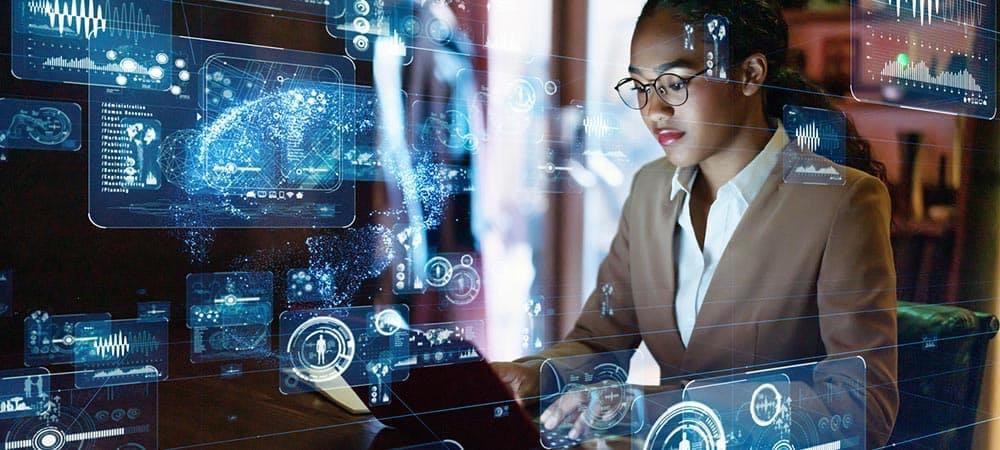Impact Of Technology On International Relations

Introduction
Tech has played an indispensable role in forming relationships among nations, and the role of technology in international relations (IR) is no exception. The origins of technology can be traced back to the rudimentary tools of the Paleolithic era, and nowadays, it has reached the sophisticated digital technologies of the 21st century. It has always been a determining factor in states’ social, economic, and political dynamics. The development of technology not only improves the capacities of states and nations but also creates intricate issues that affect foreign relations on a global scale. While technological developments are basically restructuring international politics scales, they impact everything from diplomacy and warfare to economic development and international communication. As nations are navigating these changes, technology has become the central issue in the international arena today, dictating the new order of nations concerning the power and strategies of states.
Digital Diplomacy:
Digital tools have become essential in how states manage their external presence and relations. These media, from social media to virtual summits, are the tools that connect people who are geographically separated and offer a platform for real-time communication and diplomacy. This real-time lack of privacy can enhance the transparency level. Still, on the other hand, it may pose difficulties for diplomacy, as messages and policies are broadcasted and scrutinized worldwide simultaneously.
Cybersecurity:
As countries increasingly depend on digital platforms for governance and communication, cybersecurity becomes the core element in international relations. From cyber espionage and stealing national security secrets to attacks on critical infrastructure that can escalate international tension, a wide range of risks exist. This complex cybersecurity environment consists of state actors – governments -, non-state actors like hacker groups, and even private sector agents. An urgent need for strong cybersecurity and international collaboration among states to solve cyber threats has become unavoidable. The advent of technology, especially in information and communication, has brought forth a new era with technological advancements as pivotal factors in determining the distribution of power among nations. States that have developed the most advanced tech have very powerful means at their disposal in both economic and military sectors, thus changing the way power works worldwide and introducing a new hierarchy of digital power in international relations.
Artificial Intelligence (AI):
AI impacts global trade and economics by automating complex tasks automatically, optimizing logistics, and refining forecasting. AI trade systems expedite customs processes and trade documents; hence, cross-border dealings have no delays or costs. Economically, AI brings about substantial productivity improvements resulting from applying AI technology to optimize supply chains and manufacturing processes, as well as more precise demand forecasting and resource allocation. In addition, AI-assisted data mining assists nations and companies in finding economic trends. It helps them make strategic decisions more efficiently, affecting economic policies and trade agreements between states.

Blockchain Technology:
Blockchain’s effect on international economics is powerful, mainly because it gives more visibility and minimizes fraud in trade finance. Blockchain, as a distributed ledger technology, has an immutable and transparent mechanism for tracking the products from the point of making to its entry into the market. This technology is the basis for cryptocurrency currently fighting against traditional banking and monetary systems. It may force the people to have less faith in the central banks and fiat currencies. Additionally, blockchain gives smart contracts that run by themselves and veil the need for intermediaries while reducing transaction costs and increasing trade efficiency.
Economic Security and Policy:
Both AI and the blockchain interact with national security policies and economic operations. Countries are now realizing the crucial role of technological sovereignty for which they are pouring strategic investments in developing their technologies and reducing their reliance on alien AI and blockchain technologies. This change is also reflected in international talks, where technical skills are used as a main negotiation tool and become the key element of trade agreements and economic partnerships.
Global Shifts in Economic Power:
The use of these technologies is not the same for everyone, thus leading to a change in the economic power holders. Nations that are fast to adopt AI and blockchain into their economic system are gaining an advantage over others, which might gradually change the world economy map. Emerging states, specifically, can benefit from this leapfrogging by encompassing these technologies in their industrialization, where they restructure their positions in the global economy and challenge status quo developed states.
Conclusion
Technology has increasingly been seen as a mighty force that is changing the web of global interactions, redefining the dynamics of diplomacy, security and economic development. The birth of digital diplomacy and the rise of cybersecurity measures demonstrate that nations are increasingly using technology to strengthen international relations while, in turn, becoming vulnerable to cyber threats that can disrupt those partnerships. AI and blockchain-related developments in the economy are the engines of global trade and business transformation, which creates new feasibilities and at the same time puts a deal of responsibility on the countries as well as risks related to technological dependence and inequalities. The advancement of technology is fostering a new possibility of addressing global issues, from environmental to social issues. While it is an enabler, it should also be an incentive to re-establish international cooperation and to stay ethical in governing the world so that technology does not become a bridge but a barrier in international relations.